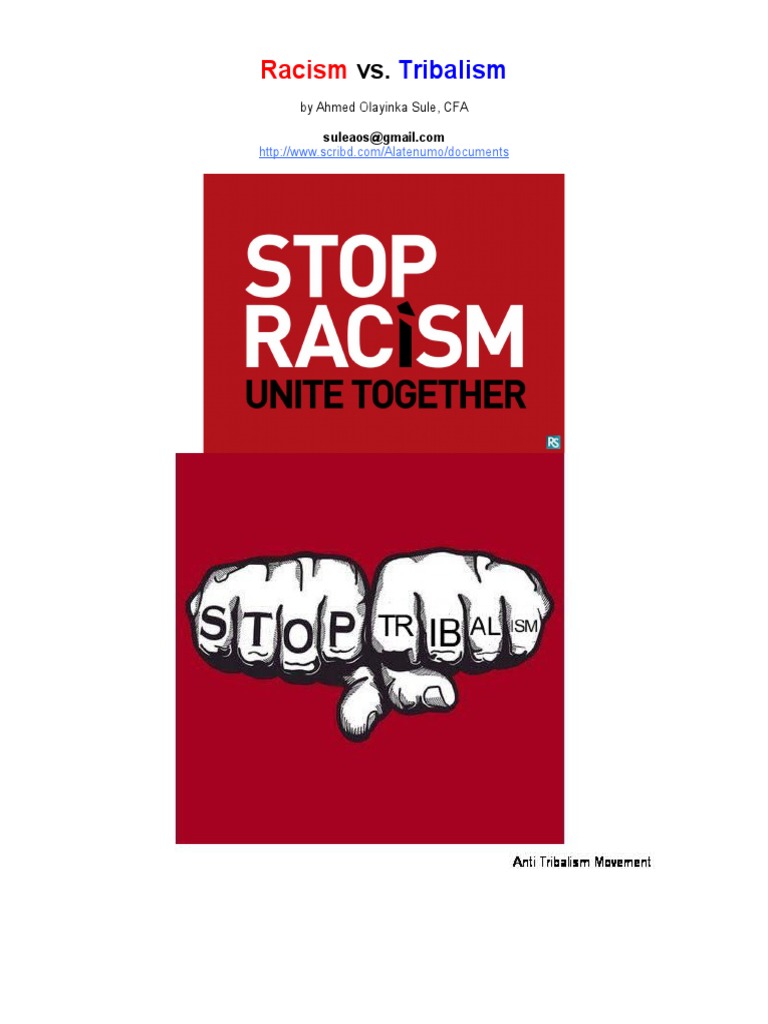In the contemporary discourse surrounding race relations, the principles espoused by the Bahá’í Faith offer a profound lens through which to examine both tribalism and the existential themes of death and loss. This exploration not only delves into the Bahá’í perspective on race but also challenges prevailing paradigms of conflict rooted in ethnic and cultural allegiances. The teachings of Bahá’u’lláh, the founder of the Bahá’í Faith, elucidate a pathway toward unity that transcends the limitations imposed by tribal affiliations.
The concept of tribalism is inherently linked to a narrow understanding of identity, often leading to an insular mentality that perceives others as adversaries based solely on racial or ethnic distinctions. In contrast, the Bahá’í teachings advocate for a broader perspective—one that sees humanity as a singular entity. This principle of oneness of mankind stresses that all individuals, irrespective of their background, are interconnected and deserving of mutual respect and understanding. The detrimental effects of tribalism are particularly poignant when viewed through the prism of death and mortality, which serves as a universal equalizer, thus urging a reevaluation of existing prejudices.
Within Bahá’í thought, the notion of death transcends mere cessation of life; it is envisaged as a transformational journey. This understanding underscores the temporality of existence and compels individuals to reflect upon their legacies and interactions with others. The wisdom derived from acknowledging our mortality facilitates a shift from a self-centered orientation toward a community-focused ethos, fostering empathy and compassion.
Furthermore, the Bahá’í narrative on race emphasizes the need for collective action in dismantling systemic injustices. Such actions entail moving beyond superficial understandings of diversity to embrace a commitment to social equity and inclusion. Each individual is called to contribute to the establishment of a society that honors the dignity of all persons. This pursuit requires not only personal introspection but also systemic reform to address the myriad forms of discrimination that permeate various societal structures.
As Bahá’í teachings assert, the antidote to the ailments inflicted by tribalism lies in education—particularly in the context of moral and spiritual education. By cultivating an awareness of humanity’s shared heritage, individuals can dismantle the barriers that have long exacerbated racial divides. Educational initiatives that promote understanding of different cultures and histories pave the way toward fostering genuine connections among diverse populations.
Moreover, the Bahá’í emphasis on the importance of dialogue resonates deeply in contemporary interfaith and intercultural discussions. Engaging in authentic conversations serves to elucidate differences while simultaneously highlighting shared values. This process not only enriches personal relationships but also contributes to broader societal healing. Emphasizing the need for reconciliation can help mend the fractures that tribalism has inflicted upon communities worldwide.
In addressing the challenges associated with race and death, the Bahá’í teachings advocate for an attitude of service—a commitment to uplifting others in their struggles. Service to humanity is viewed as a pathway to spiritual growth, allowing individuals to move beyond their own tribulations and invest in the welfare of their communities. Such altruism shrinks the distances created by tribal allegiances, fostering a sense of belonging that transcends racial categorizations.
Moreover, embracing diversity within the framework of Bahá’í teachings involves recognizing the unique contributions of various cultures to the collective wisdom of humanity. Each culture, with its distinct narratives and rituals, plays an essential role in enriching our global tapestry. Thus, rather than viewing cultural differences as sources of discord, Bahá’í principles encourage an appreciation of the beauty that diversity brings to the human experience.
Additionally, the teachings of Bahá’u’lláh insist on the eradication of prejudices, including those based on race, gender, and socioeconomic status. Achieving this ideal requires an active stance against discrimination through both individual initiative and community cooperation. The Bahá’í Faith envisions a world where justice prevails, where systemic inequalities are systematically dismantled to create an equitable society for all.
In contemplating the themes of race and death through the lens of Bahá’í teachings, it becomes apparent that the understanding of race must evolve beyond tribal affiliations—toward a recognition of our shared humanity. The perspective offered by the Bahá’í Faith is both revolutionary and necessary in an age marked by division. When individuals embrace the oneness of mankind, they lay the groundwork for a society that values inclusivity, understanding, and compassionate service.
Ultimately, the strife associated with tribalism can be reconceptualized through the lens of unity. As humanity collectively grapples with the reality of death, the teachings of the Bahá’í Faith beckon us to cultivate a legacy characterized by compassion, understanding, and an unwavering commitment to justice. Moving beyond tribalism necessitates a holistic embrace of our shared existence, culminating in a transformative legacy that recognizes and honors the value of every individual, regardless of their origins.
As we engage with these profound teachings, we are invited to reflect on our own roles within the broader narrative of humanity. The call to action is clear: unite, serve, and uplift one another, for the future of humanity depends on our collective willingness to transcend the confines of tribalism and embrace the fullness of our shared human experience.
